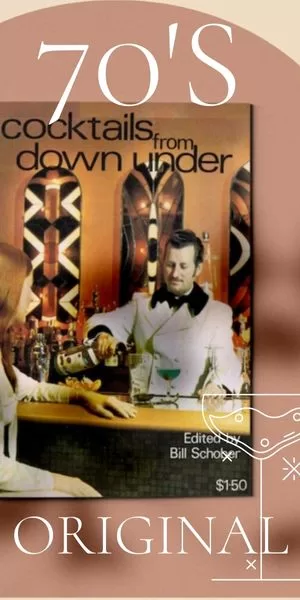a
Born Vincent Damon Furnier on 4th February 1948, Detroit Michigan, USA. Furnier, was the pioneer of a new era of rock’n roll, by adding theatrics to his stage shows. He did it before Bowie, he did it before Kiss, he was the worlds first “shock rocker” who inspired many others to follow.
Furnier formed a band in 1964, at the age of 16, with school buddies Glen Buxton (lead guitar), Dennis Dunaway (Bass) John Tatum (guitar) John Speer (drums) and Furnier (lead vocals). They called themselves “The Earwigs” and the motivation behind forming a band, Furnier was eager to participate in the local annual “Letterman’s” talent show, even though at the time none of the boys played any instruments, though their was also talk that the real reason for starting the group was simply to score with the girls in their school. They mimed their performance to Beatles songs. They won and loved the experience of being on stage, so much so that they went to the local pawn shop, bought instruments, and immediately learnt how to play them. A year later, John Tatum left and was replaced with Michael Bruce who was playing rhythm guitar in another band called “Our Gang”. With the new addition came a new name, this time the boys called themselves “The Spiders”.
For the next year, the boys performed locally around Phoenix, with the groups first stage prop placed behind them, a huge black spiders web.
In 1965, Furnier learnt how to play the harmonica and then the boys set about recording their first single titled “Why don’t you love me” (originally performed by The Blackwells). The single was released by Mascot Records, a local label owned by Jack Curtis. Curtis also owned stage 7 a teen club where “The Spiders” were the house band.
In 1966, they all graduated from High School and then went on to record their second single “Don’t blow your mind” their first original composition which became a local #1 hit.
Speer left the group and once again the band went through another name change, this time “The Nazz” and released the single “Wonder who’s lovin her now”. Speer was replaced by Neal Smith and the band relocated to Los Angeles.
In 1968, they learnt that Todd Rundgren already had a band with the name “The Nazz” so again the boys had to come up with another stage name. Furnier realized that if the group were to succeed, they would have to come up with a catchy gimmick and that all other bands were not exploiting the showmanship potential, when on stage.
Furnier then plucked the name “Alice Cooper” out of thin air and it became the new name for the band. Initially the name was only meant for the band, but after performing on stage, many fans would approach him and call him “Alice”, possibly because he was the frontman to the group. Nonetheless, Furnier adopted the name and then slowly morphed into an androgynous witch, in tattered women’s clothing and wearing strange outrageous makeup. Cooper had his gimmick which would definitely have the potential to cause considerable social controversy and grab headlines. Cooper would later admit that the name change and stage persona was his most important and and one of his most brilliant career moves.
Coopers admiration for the works of surrealist artists such as Salvador Dal, would further inspire their future stage antics. In 1969 they released “Pretties for you” and “Easy Action”. This followed with the signing of a record deal with Warner Bros and the release of “Love it to death” which launched them into the best selling charts in 1971.
A whole string of albums would follow “Killer” (1972), “Schools Out” (1972), “Billion Dollar Babies” (1973) and “Muscle of Love” (1974).
The boys loved more than anything to tour, and took sheer delight in causing controversy after every performance. This was achieved with theatrical antics such as the ‘murder of infant dolls with blood everywhere on stage, boa constrictors draped around his neck, guillotines, and electric chairs and more…, all these props together with his extremely freaky look caused outrage, but also created a huge fan base.
In 1974, Cooper embarked on a solo career and the “Alice Cooper Band” was no more. The band members continued to perform and record but under the stage name “Billion Dollar Babies”.
1975, Cooper’s first album as a solo artist “Welcome to my Nightmare was a huge hit. Cooper then went on to do a number of guest appearances in various television shows.
Five years later and Cooper releases two new albums, “Special Forces” and “Zipper catches skin” but both failed to gain any momentum or interest. Cooper resurfaced in 1989 with a new album “Trash” which was a hit.
Cooper appeared in Wayne’s World’ (1992) and “The Last Temptation” (1994). Cooper continued to produce albums which have been relatively well received, “Dragon Town”(2002), “The Eyes of Alice Cooper”(2003), “Dirty Diamonds” (2005), “Along came the Spider” (2008) and “Welcome 2 my Nightmare” (2011)though they never quite matched the success and popularity of his earlier work.
In 2003, Cooper was given a star on the Hollywood Walk of Fame and in 2004, he started broadcasting his radio show “Nights with Alice Cooper”, where the musician plays classic rock tracks and tells stories about his life. The show was broadcast on nearly 100 radio stations in the US, Canada as well as other countries worldwide. He also received an honorary degree from Grand Canyon University that same year.
More acclamations, in 2006, Cooper was given the Living Legend Awarrd at the Classic Rock and Roll of Honor event. He performed a duet with another very controversial performer, Marilyn Manson and scooped up several more honors in 2007.
Finally, Cooper and his former band were inducted into the “Rock and Roll Hall of Fame” by Rob Zombie, no kidding, in 2011.
Before Alice Cooper, it was taboo and really looked down upon to call yourself showbiz. So when he came along, Cooper went as far out on a limb as we possibly could. He did everything he could to annoy every parent in America, then backed it up with anthems that got played. He had 25 gold albums and sold 50 million records; it wasn’t a fluke.”
Cooper realized that times were changing; people weren’t as shocked as before. With the influence and pervasiveness of the media, the violence of our real-life, society killed shock. So Cooper adapted. He focused his shows on entertainment with his gruesome make-up, a boa constrictor around his neck and an unhealthy dose of fake blood. Although his humor was very dark, he claims his performances always were based on humor. And at the finale of every performance the star of the show got just what he deserved: decapitation or some other sadistic end. Although he has respect for artists like Marilyn Manson, he believes that Manson might take things a bit too seriously, and the Manson audience feels a bit shameful when all is said and done. But no matter what happens on Alice Cooper’s stage, or what evil story the lyrics tell, Cooper believes his job is to entertain his audience and to leave the people feeling good–to make them feel like they were “at the greatest party they were ever at in their lives.” As noted by Antony John, a fan who at one time had a website dedicated to the rocker, “Alice Cooper does not just give concerts; he creates shock-rock events that mesmerize, enchant, and torture audiences around the world.”
Alice Cooper is still recording. Cooper, who is about to enter his 70th year, still commands sold out concert crowds. He’s had more than 25 albums since 1969.


